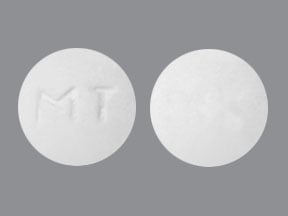
Toremifene Coupons & Savings Card – Discount Prices from $308.15
Generic for: Fareston
Toremifene, marketed as Fareston, is prescribed for postmenopausal women to manage metastatic breast cancer that is hormone-receptor positive (HR+), or in cases where the estrogen reliance of the tumor is unknown. This oral medication, taken once daily, functions as a selective estrogen receptor modulator. By blocking estrogen's effects, Toremifene helps to slow or halt the growth of certain breast cancers that depend on this hormone. While effective, it is less commonly used than other treatments. Patients should be aware of potential side effects, including the risk of serious heart rhythm changes, and discuss any concerns with their healthcare provider.
Our coupons are free to use. Before paying, show the pharmacist your Toremifene savings card to get your free discount. Use our filters below to edit the prescription box to match your needs. The Toremifene prices will update based on your prescription needs. Above our Toremifene coupons, you can change your location to see pharmacy prices and costs in other areas. We're here to help you buy Toremifene at the lowest price with our prescription discount card.
My prescription
Edit
60MG, Toremifene (30 Tablets)
Select pharmacy

CVS
$360.00
COUPON PRICE
Walgreens
$308.15
COUPON PRICE
Albertsons
$353.22
COUPON PRICE
Walmart
$1240.89
COUPON PRICEToremifene savings card
Show this card to your pharmacist
Walgreens
$308.15
BIN
ID
PCN
GRP
011867
LH7C783A5B
HT
LABH001
Powered by
Toremifene, marketed as Fareston, is prescribed for postmenopausal women to manage metastatic breast cancer that is hormone-receptor positive (HR+), or in cases where the estrogen reliance of the tumor is unknown. This oral medication, taken once daily, functions as a selective estrogen receptor modulator. By blocking estrogen's effects, Toremifene helps to slow or halt the growth of certain breast cancers that depend on this hormone. While effective, it is less commonly used than other treatments. Patients should be aware of potential side effects, including the risk of serious heart rhythm changes, and discuss any concerns with their healthcare provider.
Our coupons are free to use. Before paying, show the pharmacist your Toremifene savings card to get your free discount. Use our filters below to edit the prescription box to match your needs. The Toremifene prices will update based on your prescription needs. Above our Toremifene coupons, you can change your location to see pharmacy prices and costs in other areas. We're here to help you buy Toremifene at the lowest price with our prescription discount card.
More prescriptions for breast cancer
More prescriptions for breast cancer
Letrozole Save 96%coupons from $3.91
Megestrol Save 87%coupons from $13.85
Tykerb Save 82%coupons from $2044.83
Zortress Save 49%coupons from $241.51
Afinitor Save 19%coupons from $458.12
Lynparza Save 62%coupons from $9234.02
Femara Save 97%coupons from $3.91
Faslodex Save 80%coupons from $82.80
Toremifene dosage forms
Use our Toremifene 60MG coupon with prices from $360.00 for 30 Tablets.
Dosage Quantity Price from Per unit 60MG 30 Tablets $360.00 $12.00
| Dosage | Quantity | Price from | Per unit |
|---|---|---|---|
| 60MG | 30 Tablets | $360.00 | $12.00 |
